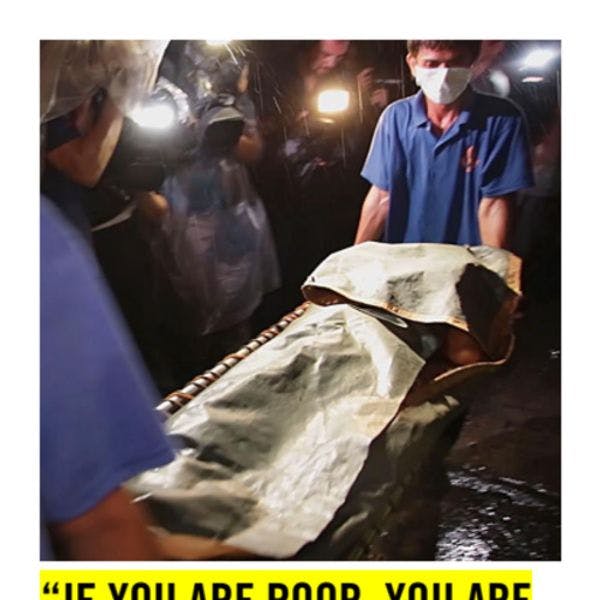"Si eres pobre, te matan": Ejecuciones extrajudiciales en la "guerra contra las drogas" en Filipinas
La investigación de Amnesty International revela una campaña sistémica de ejecuciones con la mira en las minorías sociales llevada a cabo por la policía en total impunidad. Más información, en inglés, está disponible abajo.
Suscríbase a las Alertas mensuales del IDPC para recibir información sobre cuestiones relacionadas con políticas sobre drogas.
President Rodrigo Duterte has made no secret of how he views people linked to drugs or crime; for him, they are less than human and deserving of death. Since taking office in the Philippines on 30 June 2016, his administration’s “war on drugs” 1 has borne that out to a devastating degree. Statistics from the Philippine National Police indicate that police officers and unknown armed persons2 collectively carried out 7,025 drug-related killings between 1 July 2016 and 21 January 2017, roughly an average of 34 per day.
In the poorest neighbourhoods of the Philippines, police officers on operation and unknown armed persons on motorcycles regularly target people with an alleged connection to drugs. Family members visit morgues to identify their loved one amongst the many other bodies that arrive each night riddled with bullet holes. The sight of bodies on the street has become commonplace; the fear of being or knowing the next victim, pervasive. Despite repeated denunciations by activists within the Philippines and by foreign governments, the relentless incitement and killings both continue unabated.
This report examines the human rights violations associated with President Duterte’s violent campaign against drugs. It is based primarily on field research carried out in the Philippines in November and December 2016, during which Amnesty International delegates interviewed 110 people, including direct witnesses to extrajudicial executions; relatives of those killed; people who currently use drugs; police officers and paid killers involved in anti-drug operations; local authorities; and civil society activists.
Keep up-to-date with drug policy developments by subscribing to the IDPC Monthly Alert.
